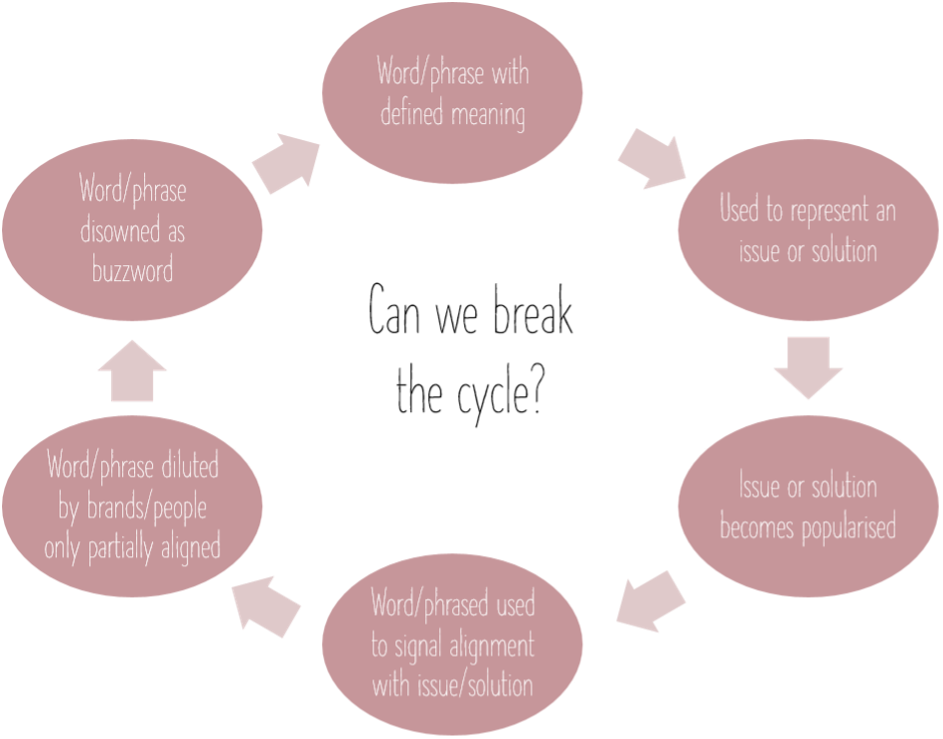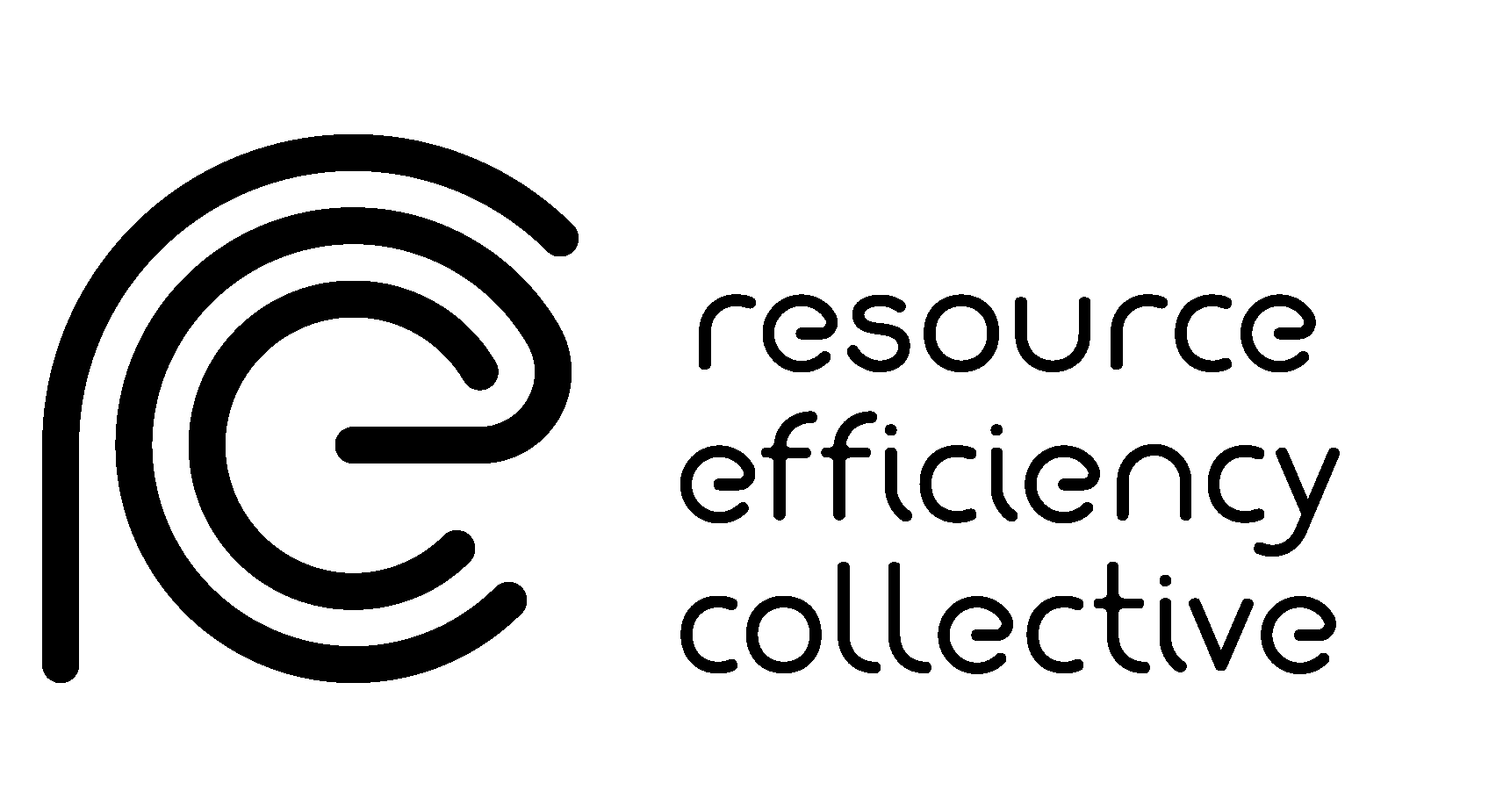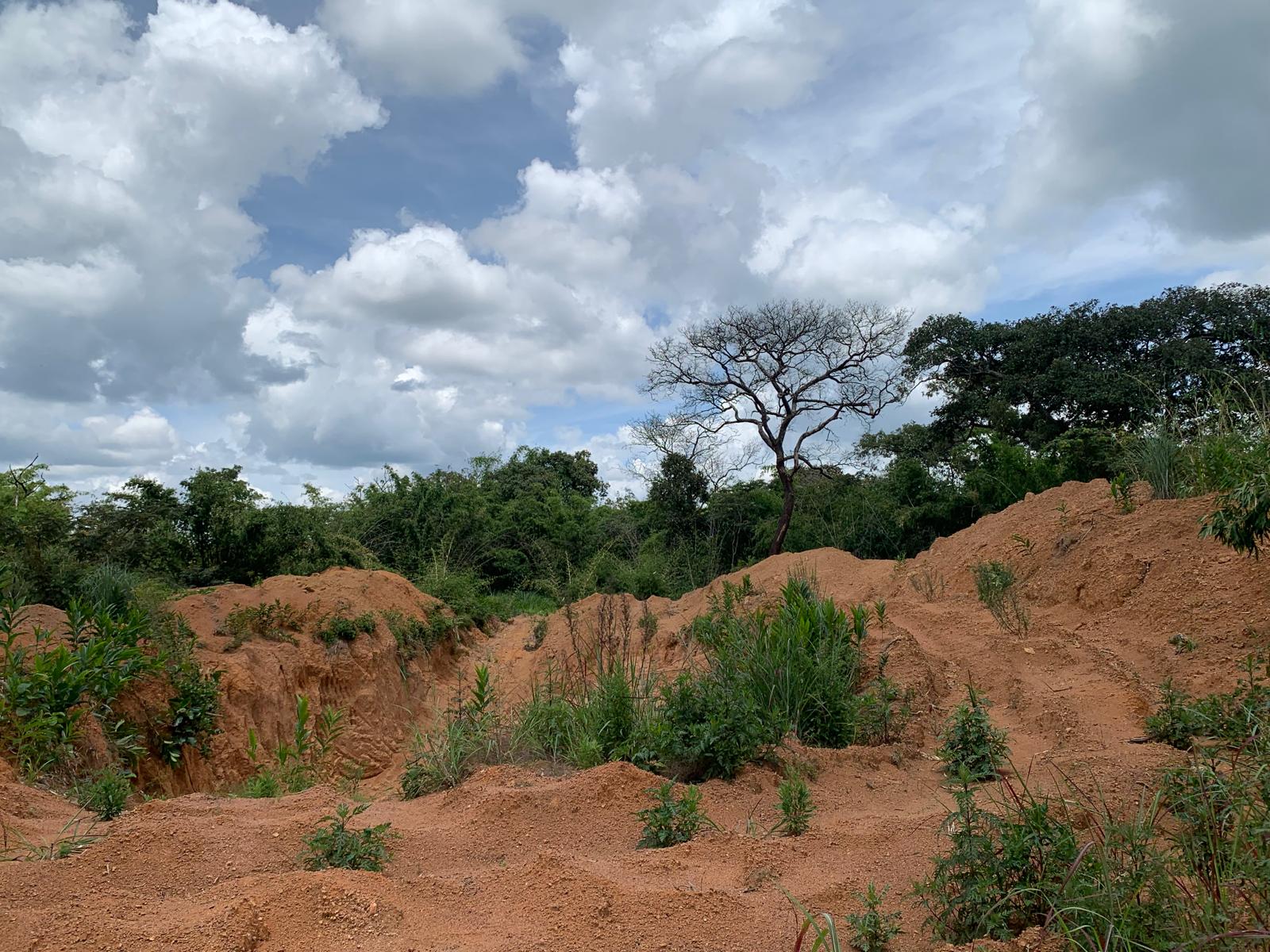Buzzwords: Devaluing or evolving global issues?
Definition: A word or phrase, often an item of jargon, that is fashionable at a particular time or in a particular context.
We are constantly faced with buzzwords. Once viewed as an annoyance of the business world, these words and phrases now pervade most aspects of our lives, at work, on social media and even at the shops.
Usually, we encounter buzzwords where someone is trying to persuade us to do or get a particular thing, whether that be an action, service or product, but where do these buzzwords come from and what is their purpose, if they have one at all?
In theory, any word can become a buzzword, although typically the words are adjectives or nouns. Brahm Capoor has created a general theory of buzzwords to try to unravel the phenomenon, which set out a life-cycle of a buzzword, adapted in the figure below.

In the context of social or environmental issues, a buzzword is typically born when an issue becomes widely known. As an issue gains momentum and people align with the values of addressing the issue, organisations use these words to purport that they offer the solution to the issue or a way to avoid worsening the issue.
As organisations and people scramble to align with the popular opinion on current issues, the word becomes mutated as the meaning gets stretched and used in new contexts. This act of ‘value-signalling’ leads to the word being used in places where it does not apply in its original definition and so the popular understanding of the word becomes increasingly vague.
As the word dilutes, those with a true understanding of the issue move to new words that offer more specific definition to the issue, enabling the growing number of people ‘involved’ in the issue to be more specific about what they are saying. This is possible as the issue has now become widely known so the general audience has a higher level of understanding and as such the more specific words are accessible. Some of these may become buzzwords in their own right.
In this way, is a buzzword being used to dilute global issues and allow anyone to jump on the bandwagon, or are they a necessary part of the dissemination of awareness of an issue and therefore a sign of success for the advocates?
The word ‘sustainability’ is an excellent example of a buzzword. Climate change has been in popular science for several decades now and sustainability was defined by the UN in 1987 as meaning ‘meeting the needs of the present without compromising the ability of future generations to meet their own needs’. This is a system-wide and all-encompassing definition that many would agree conveys the sense of responsibility that sustainability started out with.
However, today the term ‘sustainable’ is chucked about as if sustainability can be achieved by a singular product or person or action. Now, the great loophole here is that sustainability can, in theory, be applied at any scale, if we take the dictionary definition of ‘able to be maintained at a certain rate or level’. For example, growing your own food may be deemed to be sustainable on a personal level because it does not produce food transport emissions. However, if everyone did this, the inefficiency of home-grown food may significantly deplete water resources and each person would need a larger space to live, resulting in an unsustainable societal system.
This dictionary definition of the word versus the meaning of the issue, as defined by the UN, is how the buzzword has proliferated. In addition, people have begun to apply shades of sustainability to items. For example, a product may be labelled as now being ‘more sustainable’ but how can that be the case? Can it be sustained or not? Is it compromising future generations or not?
As you can see, each buzzword is a rabbit-hole of definitions, contexts and loopholes that gets increasingly complex with every use of the word until the word is meaningless. This is the way of ‘sustainable’, which is now being increasingly replaced with ‘low-emissions’, ‘circular’ and ‘ethical’, which of course all lean towards different definitions of sustainability.
Unfortunately, as the world works to come to terms with climate change and figuring out how we can continue to live without creating unliveable conditions for future generations, we must learn to look through buzzwords, call out their use when it is distracting from the core issue and aim to be specific in our own definitions and uses of complex ideas.
Photo credit: Rich Smith













